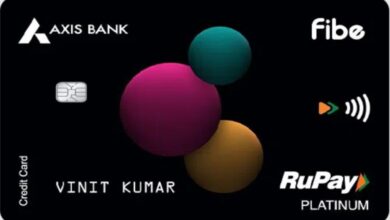Credit Card
Understanding Credit Cards: Benefits, Risks, and Best Practices

Introduction: Credit cards are a popular financial tool used by millions of people around the world. They provide a convenient way to make purchases, build credit, and access emergency funds. However, credit cards also come with risks, such as high interest rates and potential debt. In this article, we will explore the benefits and risks of credit cards, as well as best practices for managing them.
Benefits of Credit Cards: Credit cards offer several benefits to cardholders. These benefits can include:
- Rewards Programs: Many credit cards offer rewards programs, which provide points or cash back for purchases made with the card. These rewards can add up quickly and be redeemed for merchandise, travel, or other perks.
- Convenience: Credit cards are widely accepted at millions of merchants around the world. They provide a convenient way to make purchases online, over the phone, or in person.
- Build Credit: Using a credit card responsibly can help build your credit score. Consistently paying your bills on time and keeping your balances low can demonstrate to lenders that you are a responsible borrower.
Risks of Credit Cards: While credit cards offer many benefits, they also come with risks. Some of the risks of credit cards include:
- High Interest Rates: Credit cards can have high interest rates, which can make it difficult to pay off your balance if you carry a balance from month to month.
- Debt: If you do not pay your credit card bills in full each month, you can quickly accumulate debt. This debt can become difficult to manage, especially if you have multiple credit cards.
- Fees: Credit cards can come with fees, such as annual fees, balance transfer fees, or cash advance fees. These fees can add up quickly and increase the cost of using a credit card.
Best Practices for Managing Credit Cards: To maximize the benefits of credit cards and minimize the risks, it is important to follow best practices for managing credit cards. Some best practices to consider include:
- Pay Your Bills on Time: Paying your credit card bills on time is important to avoid late fees and maintain a good credit score.
- Keep Your Balances Low: Try to keep your credit card balances low and pay off your balance in full each month if possible. This can help you avoid accumulating debt and paying high interest charges.
- Read the Fine Print: Before applying for a credit card, be sure to read the terms and conditions carefully. Pay attention to interest rates, fees, and rewards programs.
- Use Credit Cards Responsibly: Avoid using credit cards to purchase items you cannot afford or to fund a lifestyle beyond your means. Use credit cards as a tool to make purchases you can afford and pay off in full each month.
- Monitor Your Accounts: Regularly monitoring your credit card accounts can help you catch unauthorized charges and fraud. You can also keep track of your spending and credit utilization, which can help you stay on top of your finances.
- Avoid Cash Advances: Cash advances from credit cards can be expensive, with high interest rates and fees. It is best to avoid using cash advances unless it is an emergency.
- Don’t Apply for Too Many Credit Cards: Applying for too many credit cards can lower your credit score and make it harder to get approved for credit in the future. It is best to apply for credit cards selectively and only when necessary.
- Use Balance Transfers Wisely: Balance transfers can be a useful tool to consolidate high-interest debt, but it is important to use them wisely. Be sure to read the terms and conditions carefully, and avoid making new purchases on the card until the balance transfer is paid off.
- Consider a Secured Credit Card: If you are new to credit or have poor credit, a secured credit card can be a good option. Secured credit cards require a deposit, which is used as collateral for the card. This can help you build credit and demonstrate responsible credit behavior.
- Consider Your Spending Habits: Choose a credit card that offers rewards or cash back for the types of purchases you make most often. For example, if you frequently travel, look for a card that offers rewards for travel purchases.
- Compare Interest Rates and Fees: Look for a credit card with a low interest rate and reasonable fees. Be sure to read the fine print to understand the fees, such as annual fees, balance transfer fees, or foreign transaction fees.
- Check Your Credit Score: Your credit score can impact your ability to get approved for a credit card and the interest rate you receive. Check your credit score before applying for a credit card, and choose a card that aligns with your credit score.
- Read Reviews and Consumer Reports: Before choosing a credit card, read reviews and consumer reports to learn about the experiences of other cardholders. This can help you choose a card that meets your needs and has a good reputation.
- Consider Credit Limits: Look for a credit card with a credit limit that aligns with your budget and spending habits. Be sure to avoid maxing out your credit limit, as this can harm your credit score and increase the risk of debt.



